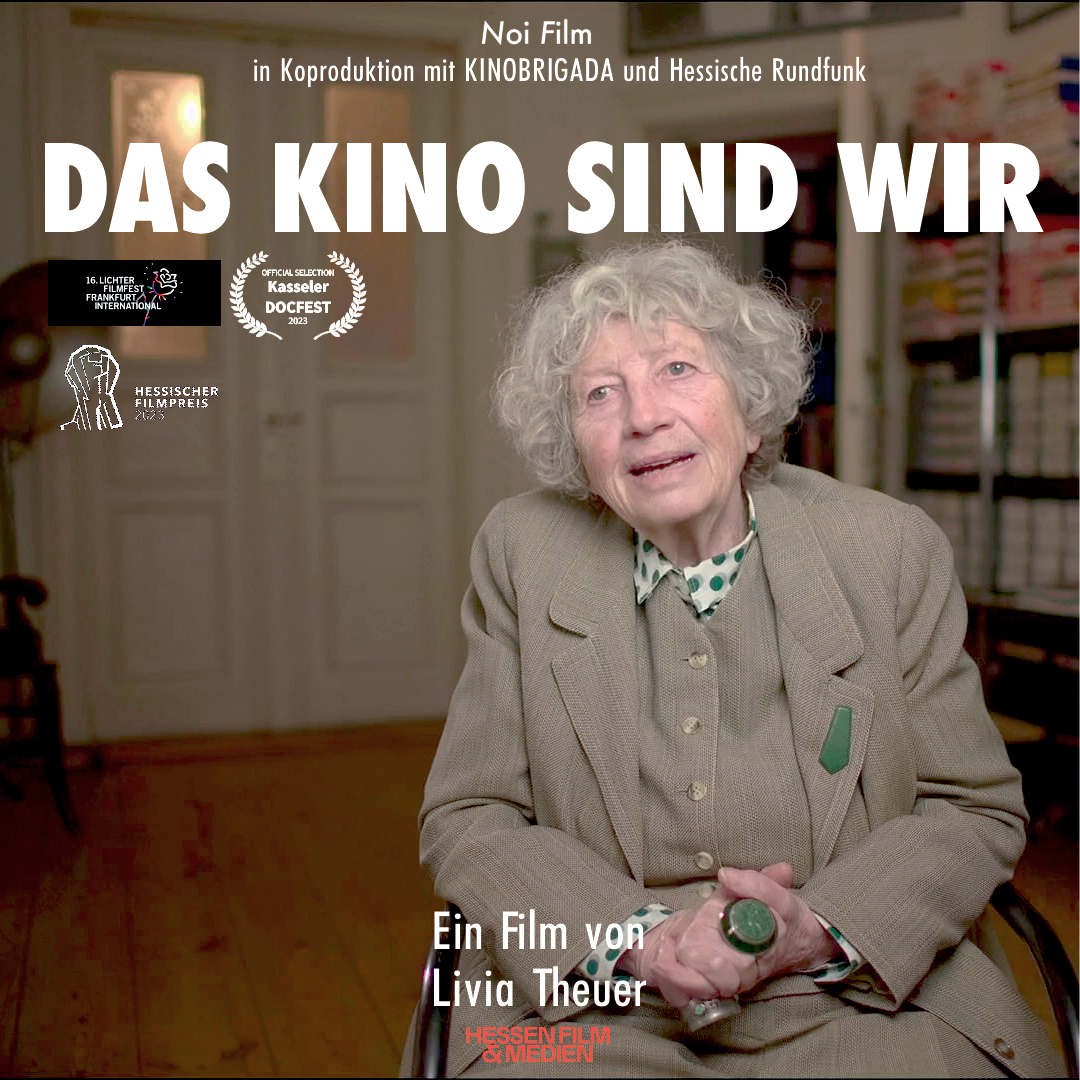DAS KINO SIND WIR
81 min, Germany, 2023 Color 6 BW, DCP, 5.1, 4:3 aspect ratio
Written and directed by Livia Theuer
Co-production with NOI Film
Supported by Hessen Film und Medien
Hessen Film Preis 2023
https://www.daskinosindwir.de/
Premiere: Lichter International Filmfestival, Frankfurt am Main 2023
Kinostart – November 22, 2023
Using the example of the Filmladen Kassel, THE CINEMA WE ARE tells the story of cinema as a social sculpture, of awakenings, hurdles, highlights, crises and compromises. In the late 1970s and early 1980s, alternative neighborhood and arthouse cinemas opened in every West German city. This was also the case in the provincial metropolis of North Hesse, where the Documenta artist Joseph Beuys left his mark with the planting of „7000 oak trees“.
The young political film freaks organize themselves democratically. „Papa’s Cinema“ is already 20 years dead when a media counter-public with 16mm cameras and projectors can emerge against the massive resistance of powerful cinema chains and distribution companies, identities beyond Hollywood. „Everyone was animated by the idea of making a political film and intervening in the social discussion with films,“ says Thomas Frickel. In 1982, his collective film KEINE STARTBAHN WEST – eine Region wehrt sich (NO START RAILWAY WEST – A Region Defends Itself) drew packed houses, not least in Kassel. The Filmladen is exemplary for this protest cinema movement. It aims to „show the other films“. Film as an art form with social relevance, cinemas as places of discourse for films critical of capitalism, experimental or first films by migrants, socially low-threshold, in contrast to theater and museum. Instead of „putting their feet up and putting their heads down,“ movie theater owners engage in discussions with their audiences late into the night. They work hand in hand with the new generation of independent filmmakers who form cooperatives. They move with their reels from screening venue to screening venue. The Kassel Dokfest evolved from the Traveling Documentary Film Festival – since the beginning of 2000 with a focus on video installations.
Alongside the still-active cinema founders, who do not give up because their pension is not enough or their passion does not die out, the formative directors also have their say. Ulrike Ottinger, Gertrud Pinkus and Monika Treut stand for self-empowerment, for feminist and queer positions in film, without which today’s debates would hardly be conceivable. Andres Veiel developed political cinema beyond dogmatism. Younger filmmakers like Klaus Stern or Mala Reinhardt are building on this. Or like Frauke Lodders, who sums up that cinema used to be more political.
To change the world with cinema, to make urban society more open, more just, more green. „It was about the cause,“ emphasizes Gerhard Wissner. 40 years later, the world has changed cinema. First commercialization, then the digital revolution, then the pandemic. Streaming empties the halls. What happens now? The collage of film clips, interviews and archive material revolves around the question of what politically engaged cinema means, what is in danger of being lost, what remains? What are the perspectives for the future? Without an audience, there is no cinema at all.
Script, direction, production Livia Theuer dramaturgy, camera Peter Rippl camera, editing Anatoli Skatchkov mixing Eick Hoemann sound design Eeva Ojanperä additional camera Susanne Minke cover art Stella Hood music ExKurs: „Waiting“ from the album „Fakten sind Terror“ 1981 Phonogram/ Konkurrenz with kind permission of Pierangelo Maset and Michael Hirsch
With Irmhild Scheuer, Jasmin Weber, Ellen Witzel, Christoph Basler, Burkhard Hofmann, David LeGrant, Raymond Ley, Frank Thöner, Gerhard Wissner, Frauke Lodders, Ulrike Ottinger, Gertrud Pinkus, Mala Reinhardt, Monika Treut, Thomas Frickel, Raymond Ley, Klaus Stern, Andres Veiel
Distribution:
Filmdisposition Wessel,
Feuerbachstraße 35,
14471 Potsdam, Germany
+4933158247595
buero@filmdisposition-kino.de
